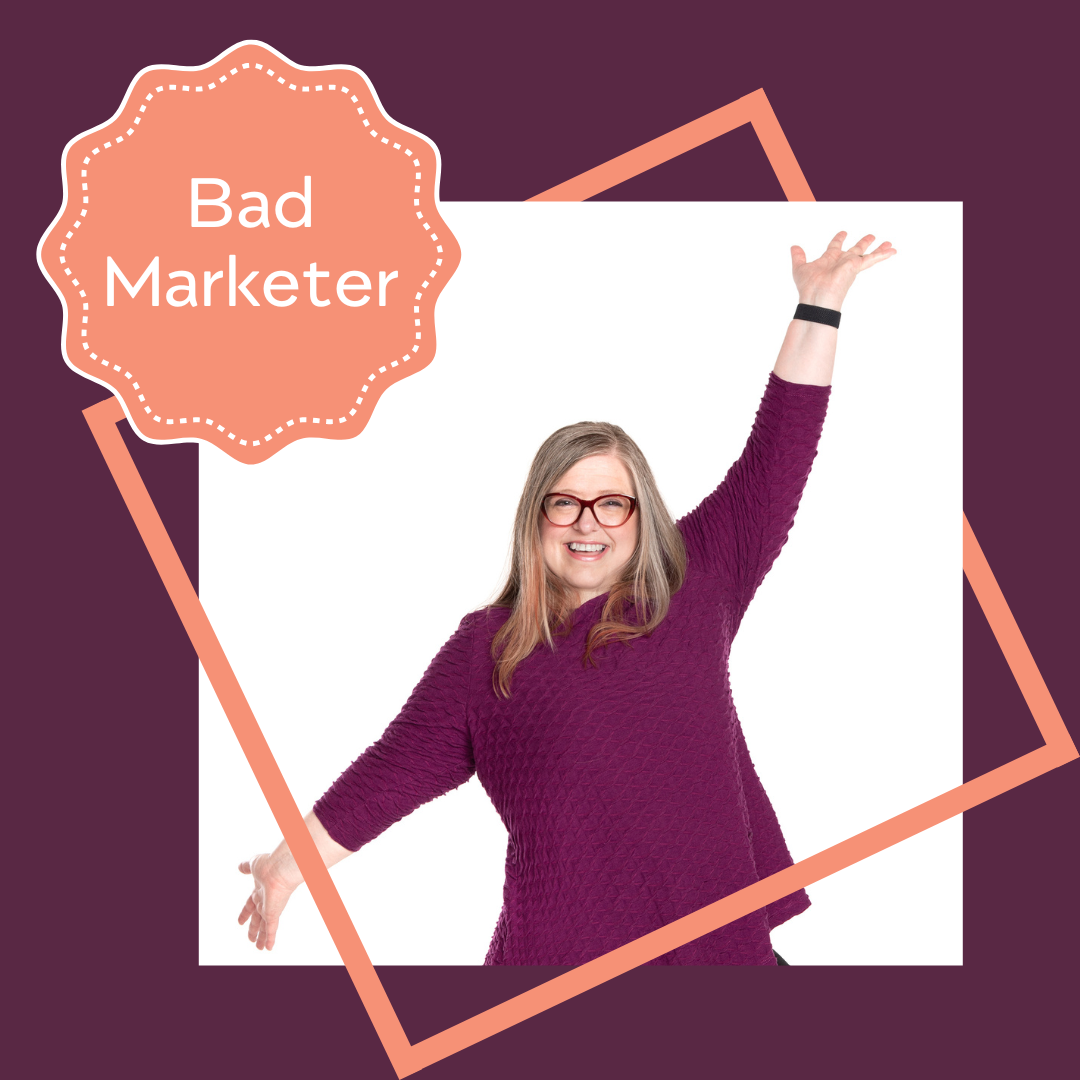Marketing tactics I'm leaving behind

In one of my long-past roles, I was responsible for the company website. That's been part of my work in a few different places. At one point, we had a full-time web developer, but when they left the company, that work was assigned to my team to complete. Before we hired a part-time web developer, I engaged with a contractor to fill the skill gaps we had without a dedicated developer to help us out.
At one point, I was giving some direction to our web dev contractor about changes to the homepage, specifically the hero (that's the banner image/text at the top of the page, usually directly under the navigation menu).
The changes I was requesting were requested were entirely against best practices in web content. I knew it. They knew it.
So, like the talented marketer they were and are, they asked me, "Who's the audience for these changes?"
My response: "The board."
It was true, too. This was entirely about marketing the work the marketing team was doing to leaders who didn't care about strategy or best practices. They just wanted to see something concrete being done that they agreed with.
This is one of many similar stories I could share about how marketing operates in corporate environments. Not every marketing team has to take direction from leaders this way, but the pressure to bring in more leads fast so they can be pushed to sales grows every year, along with the use of unethical or misguided tactics.
Let me be clear about a few things before I go any further:
- Not all marketing is unethical. I know there are people who believe marketing is inherently unethical and I want to challenge that (totally understandable) belief.
- Not all marketers are unethical. A lot of us want to do things right, but we're not always empowered by the folks in charge to use our expertise in principled ways. In fact, it's not unheard of to be asked to compromise our ethics.
This post is about how I'm tired of doing the same old things and a little bit of why I'm not going to do them anymore.
Put simply, I'm tired of doing the same things everyone else is doing. I mean, I've kind of been done with that since I started because I've never been willing to go the sell, sell, sell route.
So, here are a few things I've decided to let go of in my business marketing.
Facebook and Instagram
I didn't really want to set up a Facebook page back in 2020 when I did, but I did it anyway and it broke my personal rule of not using channels I'm not fully committed to in my marketing.
While I don't think it was a failed channel, I really wasn't into it for many reasons. Since 2021, I've mostly not even had Facebook and Instagram installed on my phone. That meant I wasn't posting much, and I loved it. I got drawn back in from time to time, but from early 2023 until January this year, I only posted about half a dozen times.
When Mark Zuckerburg made his announcement that Facebook was going to return to it's "roots around free expression," I knew I was done.
The truth about Meta is it's never believed in free speech:
- I followed countless BIPOC activists whose deeply meaningful and important content was consistently shadow-banned.
- Want to talk about the genocide of Palestinians? Chances are, you could have your account suspended for caring about people being slaughtered.
- The company recently learned that their power to suppress stops where the Internet connection ends when a whistleblower's book shot to number one after they got a court order to prevent her from promoting the book.
Chances are good my leaving Facebook and Instagram won't matter in the least, but I feel better not being there where they can use my data to fund their greed.
Email marketing and automation
In my work, I've often encouraged businesses to entice people (potential prospects) to hand over their email address because having an email address is an invitation to their inbox. It's GOLD, baby.
Here's the thing: I am a subscriber to more email lists than I have bothered to count. I use filters to file them away and pay attention only to the ones that are important for me to follow.
I bet you're not that different.
Maybe you do mass deletes every few months, or clean your inbox of subscriptions you forgot about and don't really want. Maybe you've occasionally subscribed just to see that freebie they say is so wonderful (it rarely is) and you unsubscribe as soon as you find out it isn't as great as advertised.
This is followed closely by the automated messages we set up for subscribers to welcome them as leads into our funnel so we can connect with them personally (through automation) that hopefully leads to a sale.
Not gonna lie, I actually like email automation and so much of what's possible with it, but they way we talk about lead magnets and automated nurture sequences has bothered me for a long time.
Manipulative content and tactics
There's no doubt that the headlines, titles, and subject lines we use matter. They're meant to attract your attention and convince you to click. But ever since Upworthy, Buzzfeed, and other content producers in that vein made us all aware of the power of clickbait, I've tended to avoid creators and companies that lean hard into that approach.
I've tried to avoid clickbait myself, but I won't say I've never done it. It's possible I have, and if anyone finds clickbait on something I've created, I'll take that feedback with gratitude.
We're being manipulated in so many ways that I can't even picture what the world would be like without that barrage of advertising, headlines, hot takes, AI-generated content, and so much more.
What's the goal here?
For me, it's shifting to a simpler, more personalized approach to business. I don't care if I ever make a million dollars a year, let alone more than that. I don't need to have thousands of followers or dozens of clients.
I want to be enough and do enough to have enough.
Working with clients who are of a similar mindset is a bonus, though I would work with any business or non-profit that wants to grow ethically. I have yet to work with a small business client who didn't share that desire.
Some would say I'm just a bad marketer. Maybe I am. If wanting to show both authenticity and concrete proof of what I can do to help someone makes me a bad marketer, I'll wear that badge with pride.

I'd rather be a bad marketer than an annoying business owner posting content just to get attention without understanding how to truly connect with people.
***Please note that I don't think that's true of everyone who posts often.***
I'm impressed with some folks who share from the heart on such a regular basis. However, we cannot deny the volume of content that could disappear, and no one would even notice, beyond the decrease in noise level.
Setting priorities appropriately
Since before 2020, I have regularly struggled to discuss my usual marketing topics.
It began as I became more aware of the growing list of surveillance tools that marketers use to ensure you see their ads and initiate or manufacture touchpoints in unexpected places without your consent.
But here's the thing: Small businesses can't afford the most intrusive tools.
At most, the small businesses you engage with are using an email marketing tool that integrates with their website to see traffic of individual users or link tracking, so they know if you've clicked on a link in an email they send. In both cases, this is only if they know what's possible and have the technical know-how to set it up or the resources to outsource it.
The average small business owner isn't going to use that data in ways that would harm you. They're gathering basic data on what resonates with their audience.
Big corporations know far more about us than any of us should be comfortable with, and it's been like this for years. Furthermore, data brokers are getting better and better at connecting the dots of your bytes of data dripped out here and there to manipulate you into making purchases.
I know I'm not the only one trying to figure out how to find a better path in the current reality we're facing, so I'm putting my journey out there in hopes it helps others.
A better world is possible, and small business can be a major driver to make that happen. More on that next time.
Karen




